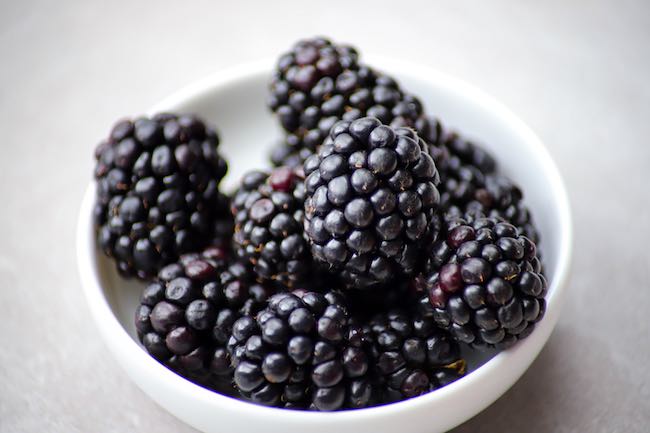
The most popular cane fruits in the UK are raspberries, blackberries and loganberries.
How do I grow them?
To grow raspberries, blackberries, and loganberries, you will need to do the following:
- Choose a sunny location with well-draining soil for planting.
- Purchase canes (or plants) from a reputable nursery or garden centre.
- Plant the canes in the early spring or fall, spacing them about 3 feet apart.
- Make sure to provide support for the canes, as they will need something to climb on.
- Water the plants regularly, especially during dry spells.
- Prune the canes regularly to promote new growth and remove any dead or diseased wood.
- Fertilise the plants in early spring with a balanced fertiliser.
It’s important to note that raspberries and blackberries have different growing habits and pruning requirements, so it is essential to do a bit of research on the specific variety you are growing.
Also, it’s important to note that some cane fruits are biennial, meaning they will bear fruit in the second year after planting and then should be pruned after fruiting.
What is the best type of soil to grow them on?
The best type of soil for growing raspberries, blackberries, and loganberries is well-draining soil that is rich in organic matter. These plants prefer a slightly acidic soil with a pH between 6.0 and 7.0.
Sandy loam soils are ideal for cane fruits as they drain well, yet retain some moisture and can hold the nutrients. If your soil is heavy clay, you can improve it by adding organic matter such as compost, peat moss, or aged manure.
It’s important to ensure that the soil is not waterlogged, as too much moisture can lead to root rot, which can be fatal to the plants. Good drainage is crucial, so if you have heavy clay soil, you may need to amend it by adding coarse sand or grit to improve drainage.
In case the soil pH is too alkaline, you can add sulphur or sulphur-containing fertilisers to lower the pH.
Regular soil testing can help you to know the nutrient levels and pH of your soil, this way you can adjust accordingly.
Which pests and diseases could be a problem?
There are several pests and diseases that can be a problem for raspberries, blackberries, and loganberries. Some of the most common include:
Spotted wing drosophila: This is a small fly that lays eggs on the fruit, causing them to become mushy and unmarketable.
Raspberry fruit worm: This is a small worm that feeds on the fruit, causing it to become discoloured and deformed.
Raspberry cane borers: These are small insects that tunnel into the canes, weakening the plant and making it more susceptible to disease.
Raspberry crown borer: This is a small beetle that feeds on the crown of the plant, causing wilting and death of the plant.
Powdery mildew: This is a fungal disease that causes a white, powdery coating on the leaves, reducing photosynthesis and weakening the plant.
Anthracnose: This is a fungal disease that causes dark, sunken cankers on the canes and fruit, reducing yields and the overall health of the plant.
Verticillium wilt: This is a fungal disease that causes wilting and death of the plant.
To prevent and control pests and diseases, it’s important to practise good cultural care, such as proper pruning, fertilisation and irrigation. Regular monitoring and prompt removal of infected or damaged plant parts can also help to reduce the spread of pests and diseases.
In case of severe infestations or diseases, it may be necessary to use pesticides or fungicides according to the label instructions and under the advice of a local extension agent.
How can I deal with birds eating the fruits?
Birds can be a big problem for cane fruit growers as they can quickly eat a large portion of the crop. Here are a few ways to deal with birds eating your fruits:
Netting: Covering your plants with bird netting can be an effective way to keep birds away from your fruits. Make sure to use a fine mesh netting that is large enough to drape over the entire plant and secure the edges to prevent birds from getting in.
Scare tactics: Use visual or auditory scare tactics to deter birds, such as hanging shiny objects, streamers or aluminium pie plates on the plants. You can also use bird distress calls or alarms to make them fly away.
Planting decoys: Planting decoy fruit trees or bushes that birds prefer over your cane fruits can be a good way to divert them.
Timing: Harvesting your fruits at the right time can also be an effective way to reduce bird damage. For example, raspberries and blackberries are ripe when they are fully coloured and slightly soft to the touch.
Trapping: You can also use bird traps to catch birds, but it’s important to make sure that you release them at least 5 miles away from your property to avoid them coming back.
It’s important to note that birds are protected by law, so it’s important to use humane and non-lethal methods of bird control. Also, it’s important to remember that these methods may not be 100% effective, so it’s important to have a combination of methods to keep the birds at bay.





















